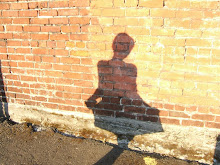
Spending the last four years as a student at a university that promotes social justice, and thus turning an eye of scrutiny upon the American government’s agenda in other nations, has primed me for encountering negative responses from other countries regarding America’s example in the world. So when I read an editorial about Barack Obama’s election as the 44th president of the U.S. written by Hilton Mendelsohn, a writer who helped to found the organization WeZimbabwe, I experienced an odd sense of pride.
Meldelsohn writes:
“So now the questions have shifted to us; Will we continue down the path that soes the seeds of fear and prejudice that suggests that some people are more deserving than others because of their skin colour or ethnicity?”
He describes America as having struggled more than Zimbabwe in terms of division and oppression. Acknowledging the election of Barack Obama may not have personal significance to the majority of Zimbabweans, Meldelsohn stresses the symbolic significance of the event.
America as a symbol for a country under so much economic and political turmoil? As a symbol for a people going through a crisis with which few Americans could readily relate? America, for the first time in my life, is cast in a new light. Years ago, perhaps, the phrase “American Dream” didn’t elicit a weary sigh. And even though the dream still exists for some people within and without U.S. boarders, most people I know take the phrase as nothing more than a fond relic from our grandparents’ youth.
Traveling to India in August slightly shifted my cynical perspective on America, but it also raised other critical questions. Now, however, hearing people from abroad speak about the U.S. with such admiration rocks my worldview—and U.S. citizens’ place—to the core. That’s not to say, of course, criticism should abruptly cease. But it’s refreshing replace some of the negativity with optimism.
Mendelsohn writes:
“In a country where the black majority was once oppressed by a white minority, where a black minority group oppressed and slain by another black majority, where a white minority found itself being oppressed in a role reversal and eventually where an entire nation has found itself on it’s knees and scattered around the world surely this story of overcoming the odds and making a way where no way seemed possible should hold some special resonance.”
It seems this election has brought history to the forefront, fostering connections across boarders, which only a few months ago seems to be thick with barriers and cut with experiential divides. Looking for connections between nations—perceiving an international story through a lens of locality—has never been easier or more blatant. People the world over are doing so not because they are forced to, but because of a personal desire.
Poster by Scott Hansen, found via OMG Posters.







